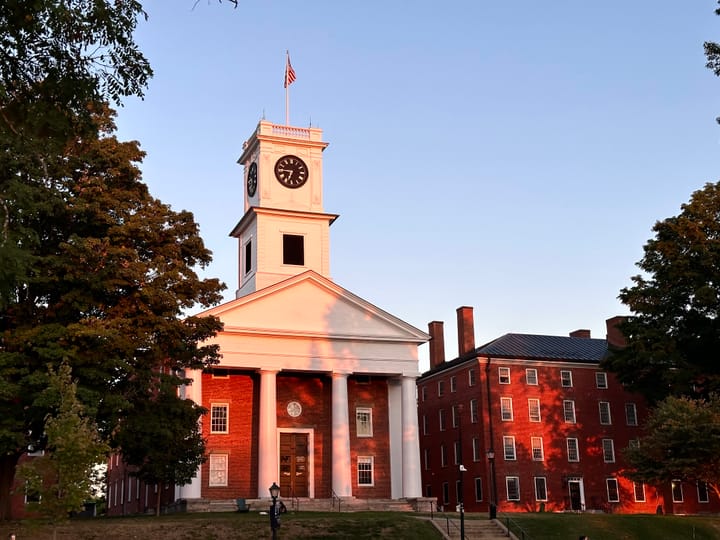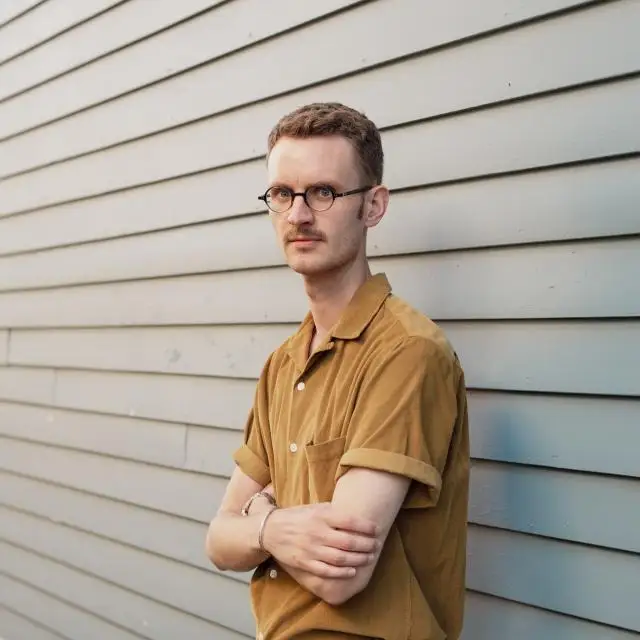�Viva la revoluci�n!
“Cuba is a case where [Witness for Peace] has been working for several years trying to educate North America about life in Cuba and how U.S. policy impacts people down there,” said Irwin. “I’m not a person with any particular expertise in Latin-American studies but what I am really interested in, from the point of view of studies in religion, is the question of ethics and global political responsibility, and I think Cuba is a case where really important ethical and political questions are in play.”
Culture clash
Cannon, who has done work for Witness for Peace in the past, organized Amherst’s first trip of this nature to Cuba. “[Witness for Peace] put together a terrific schedule for us that was very educational and exposed several different sides of the conflict that’s going on in Cuba and addressing the United States’ policy and economic interest in Cuba,” she said. “Students are talking about changing majors or going back to Cuba to do their study abroad there.”
The delegates spent 10 days at the Martin Luther King Center in Havana, Cuba, an international delegation headquarters. They split their time between Havana and Piñar del Rio and spoke with a variety of people, including members of the Cuban Ministry of Foreign Affairs and the Federation of Cuban Women, local grassroots activists, students and professors from the University of Havana, religious leaders and U.S. officials from the United States Ministry of Foreign Affairs in Cuba.
Although the delegates were not allotted a great deal of free time, they were able to talk to native Cuban residents, which challenged some students’ social stereotypes. “Every other person that you met invited you to their homes,” said Maadi Fuller ’01. “People were just friendly to the point that, as Americans, we had a hard time understanding; we really wanted to put ulterior motives to it because they were so nice.”
This was the first trip with Witness for Peace that was organized at Amherst, thanks to generous funding from the President’s Office, the Dean of Students’ Office, the Career Center and numerous academic departments,
“You’re sending a group to Cuba to learn more about the entire world,” explained Michelle Oliveros-Larsen ’02. “The Witness for Peace program made it totally based on knowledge and gaining knowledge and everything they did was very conducive to learning and being challenged.”
An increasingly large number of colleges and universities have also been traveling to Cuba and other parts of Latin America with the support of Witness for Peace. Georgetown University, for example, was Cuba’s last visitor before Amherst. “Obviously, there’s a lot about Cuba that we still don’t know, but I think this was about as thorough an introduction to that society as one could really hope,” said Irwin.
Cuba in particular has also been gaining more attention from various organizations like Witness for Peace. “With the change in administration in Washington, there were a lot of questions being asked about U.S. Cuban policy and whether there might be changes in that policy, so now seemed like a time when it would be particularly propitious for us to go down there,” said Irwin. “We have to bear, unfortunately in my opinion, responsibility for current U.S. policy, which is being enacted and perpetuated by our elected representatives.”
Cuban and American government officials also encouraged the delegates to experience as much of the Cuban society as they could. “It certainly is the case that Cuba is a country and political system that gets a very large amount of bad press in the U.S.,” said Irwin. “To actually go and check the reality of life in Cuba against the seriously distorted picture of that society and to talk face-to-face with ordinary human people and hear from them what they find positive and what they themselves want to critique about their own society was a tremendous and unique opportunity.”
Cuban pride
Although the delegates found many problems with the Cuban government, the trip had many positive things to offer to them as well. “It was fascinating and exciting to be in a socialist country to see what that feels like for ten days-the comparisons are so stark,” said Cannon. “Within the first 24 hours of being there, you realize that everybody has shoes. The basic standard of living is much higher than any other Latin-American or any other Caribbean nation by far.”
A visit to the Latin-American School of Medicine, which trains medical professionals from Latin America and Africa at the expense of the Cuban government, was especially noteworthy for some. “It makes us look bad, to put things bluntly, because Cuba is quite a poor country with very limited resources, and yet they’re using a significant chunk of their resources to try to improve medical treatment in other countries,” said Irwin.
Many of the delegates were also surprised by the success of Cuba’s political system. “We met a couple of people who were still jaded and thought that the U.S. was the land of freedom and opportunity, but most Cubans don’t want capitalism to come to the islands,” said Cannon. “They’re proud people and really smart; they’re not trying to mimic and be American.”
Breaking down stereotypes between Cuban and American societies was one of the most important educational goals of the delegation. “The representatives said, in part, if we were in disagreement with current policy, it’s up to us to carry back whatever lessons we learned in Cuba and to shape U.S. policy from the grassroots up here,” said Irwin. “The [Cuban] government has some amazing ideas that are groundbreaking, and America should follow in example, but they also lack things that I value highly in America,” added Oliveros-Larsen.
Naturally, the delegates needed to keep an objective standpoint and to consider the prejudices of both Cuba and the United States against each other. “Especially in Cuba, they know how much anti-Cuban propaganda is in the U.S. so what they want to do is show you all the good things about Cuba,” said Oliveros-Larsen. “I think the hardest thing for some people on the trip was taking people in context and understanding that very few people were going to give you the whole story.”
But, according to the delegates, they still learned a great deal from this experience. “It really enabled me to get a view of Cuban society through their eyes and it was really valuable to see a working socialist model and to be able to see a lot of the good things that socialism can bring to a country because we don’t get any of that in the United States,” said Fuller.
Even those who were already familiar with Cuban culture needed to reexamine their personal opinions and viewpoints. “I’m Cuban-American, so I’d been fighting my whole life with the issue of is communism corruption?; so I had a lot of personal things to gain from [the trip].” said Oliveros-Larsen. “It was probably one of the most challenging things I’ve ever done because in order to learn anything from it, you really had to analyze what you think you know versus what is actually going on.”
To prepare for the trip, the delegates attended-and continue to attend-weekly classes, and they were assigned readings such as “Cuba: Neither Heaven nor Hell” by Maria Lopez Vigil. However, the education did not end there for the delegates. “That was one of the requirements [for the delegation]-you agree to engage in activism when you return,” said Oliveros-Larsen.
Plans for peace
The possibility of a future Witness for Peace Delegation from Amherst though in much demand, is not certain at the moment. “The desire certainly seems to be there, so we’re hoping that similar types of trips can be organized in the future,” said Irwin. “I feel grateful to have had a chance to participate in an experience like this with students as committed and courageous and insightful as this group of students was, and with people of such generosity and vision as [Cannon] and [Weyland].”
The delegates who did participate in this trip will be working to inform and educate the campus on what they have learned and experienced. “It’s not just about learning about Cuba, because we learned so much about what’s going on in the world from the people we met and the Witness for Peace leaders who were in charge of our trip,” said Oliveros-Larsen. “I came back with a desire to be more interested in global politics in general and to learn where America stands on issues.”





Comments ()